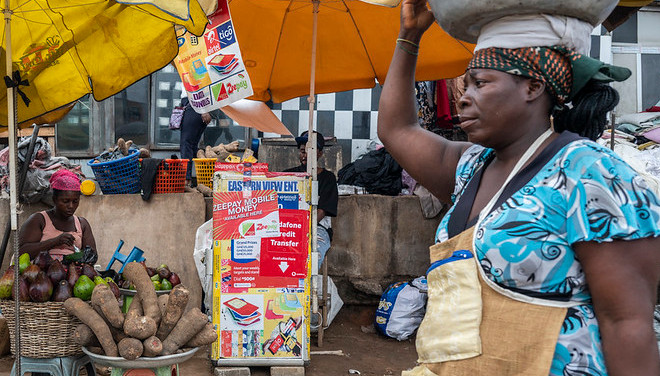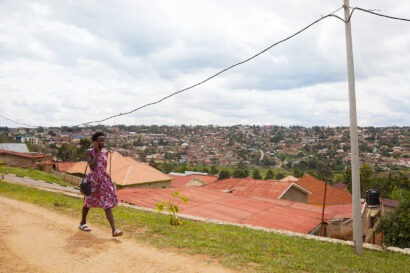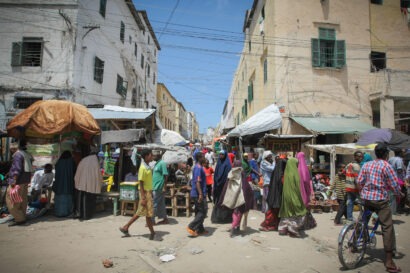The reduced tax rate on electronic transactions is unlikely to satisfy Ghanaians given the country’s rising inflation
On 11 January 2023, the Ghanaian government reduced the tax rate on electronic transactions from 1.5 per cent to 1.0 per cent. The eight months since the e-levy’s introduction have been marked by protests and opposition, and revenue has been well below the government’s expectations.
One more change in a series of e-levy rate changes
It’s not the first time the government has cut the rate. The e-levy, the aim of which is to increase tax revenues and formalise the informal sector, was first announced at 1.75 per cent in November 2021. By the time it came into effect in May 2022, the rate had been lowered to 1.5 per cent in response to public protests, and the levy included exemptions such as a daily cumulative tax-free threshold of GHS 100 (about USD 9, based on Bank of Ghana’s current exchange rate).
The recent change cuts the rate to 1.0 per cent as of 11 January 2023. The daily tax-free threshold remains in effect, although its removal was announced earlier in the 2023 budget statement.
What is the government’s motivation for changing the e-levy again?
Since the e-levy came into effect, mobile money users have sought ways to avoid paying it by using exempt agent accounts and the ‘allow cash out’ option — this allows a person to access money from someone else’s mobile money account, with remote approval. People also played with the daily tax-free threshold, splitting their transaction amounts to avoid paying the e-levy.
These avoidance strategies, combined with the decrease in mobile money usage, have reduced the effectiveness of the e-levy in collecting revenue — 8 months after the implementation of the e-levy, only 11 per cent of the initial revenue target has been achieved, according to the Ghana Revenue Authority.
The reason the Ghanaian government has again revised the e-levy is to “aggressively mobilize domestic revenue”, as mentioned in the 2023 Budget Speech. Hence, this policy change could be seen as an attempt to increase the e-levy tax base.
High inflation is offsetting the benefit of the daily tax-free threshold
The daily tax-free threshold was intended to benefit the poor, many of whom are frequent users of mobile money but for small transaction amounts.
When stakeholders protested the government’s announcement to remove the daily threshold, the government decided to keep it in place. However, considering Ghana’s high inflation rate in the past year and the rising prices of basic goods, the relevance of the daily exemption is becoming questionable.
The Ghana Statistical Service recorded significant year-on-year inflation rates for water, cereal products, and milk and other dairy products (42 per cent, 37 per cent and 30 per cent in May 2022, respectively, and 92 per cent, 72 per cent and 82 per cent in December 2022). This represents a 46 per cent price increase for these 3 basic items in just seven months.
This trend has been exacerbated by the sharp rise in transport costs by about 71 per cent and the double rise in utility tariffs within six months — a rise of nearly 22 per cent for water and over 27 per cent for electricity in September 2022, followed by an additional rise of 30 per cent for electricity and 8 per cent for water in February 2023.
In May 2022, marking the first application of the e-levy, Ghana’s year-on-year inflation rate was estimated at 27.6 per cent.
By January 2023, the inflation rate had risen to 54.1 per cent, reducing the value of the daily tax-free threshold of GHS 100 to an adjusted value of only about GHS 46.
For stakeholders, the policy still falls short
Despite the decrease in the e-levy rate, the new policy still falls short of stakeholders’ requests and thus may not fill the huge deficit that has sent the government to the International Monetary Fund (IMF) for help:
- Several studies suggest that the e-levy should be removed, stating that it is inefficient and regressive and could have a negative impact on people making low-value transactions.
- The Ghana Chamber of Telecommunications has called for a rate of 1 per cent.
- Mobile money agents are advocating for a 0.5 per cent rate and an increase of the daily exemption threshold to GHS 500.
The minority in Parliament has suggested a 0.5 per cent rate and a GHS 300 daily exemption threshold.
For now, important policy questions remain:
- What will be the effects of the new policy on transaction values and volumes?
- Will this policy reduce the propensity of mobile money users to avoid the e-levy by using agent accounts and splitting transaction amounts to remain below the daily threshold?
- Will the new policy be more effective in meeting the government’s revenue expectations?
Why the e-levy is likely to stay
Ghana’s tax to GDP ratio of 11.4 per cent is lower than the average of other low-to-middle-income countries (20.2 per cent), and that of its neighbours, such as Togo (15.4 per cent) and Burkina Faso (16.6 per cent).
In 2021, Ghana faced a budget shortfall due to its inability to finance two major expenditures of debt servicing (USD 3.4 billion) and compensation to government employees (USD 3.1 billion) with tax revenue of GHS 560 billion (about USD 5.6 billion).
As a result, in 2021, the government introduced several measures, including the COVID-19 Health Levy, the Sanitation and Pollution Levy, the Financial Sector Clean Up Levy, and the Energy Sector Recovery Levy.
All these levies have not significantly improved the country’s revenue, and the high budget deficit has finally pushed the government to seek an IMF bailout. Ghana recently reached a staff-level agreement for a USD 3 billion facility with the IMF, subject to approval from the IMF board.
The IMF board’s decision will be influenced by factors such as Ghana’s ability to increase its domestic revenue — hence, the e-levy is likely to stay.
See also:



